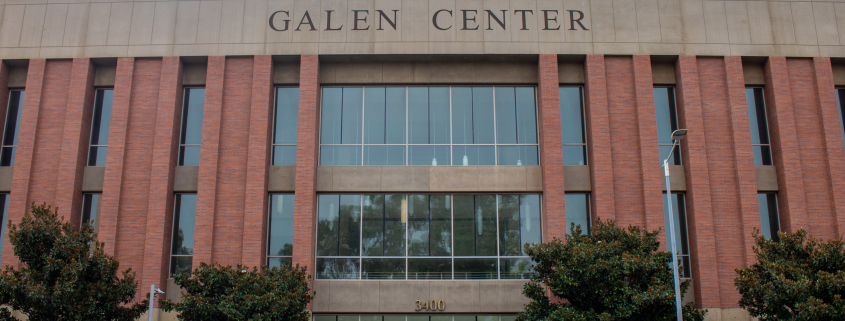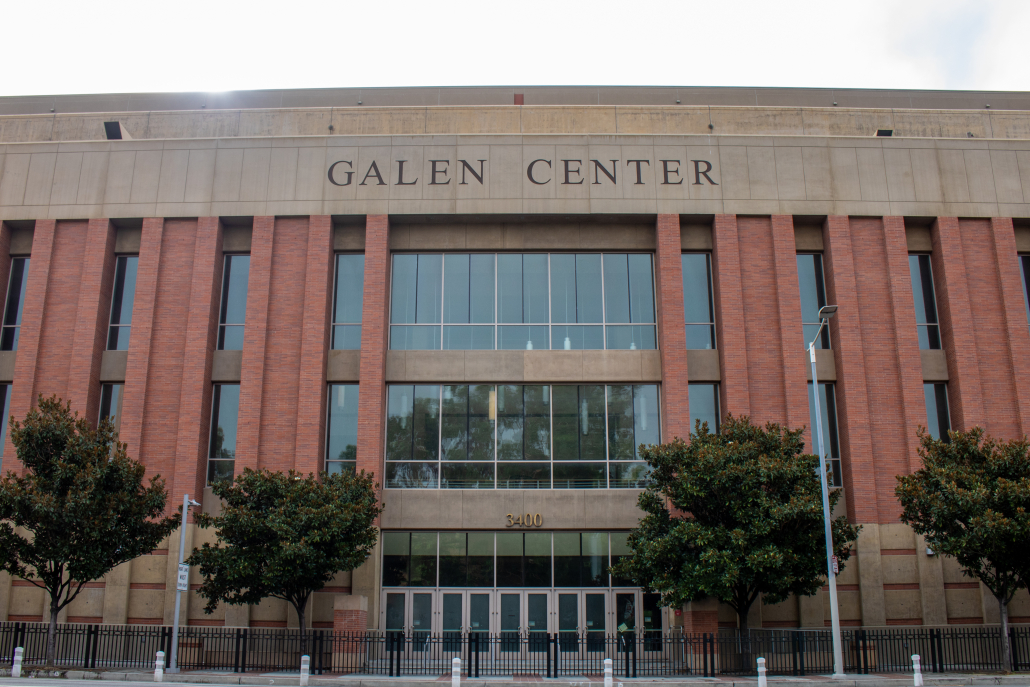USC should do more to incite lasting change for sustainability
When President Carol Folt, who holds a doctorate in ecology, assumed her position as the University’s President in 2019, it came as no surprise when the former researcher began setting ambitious goals for sustainability at USC. One of these goals transparently outlined the formation and implementation of the Sustainability 2028 Plan.
For instance, Folt’s Instagram account features a story titled “Sustainability,” which compiles previous stories of USC’s recent eco-friendly initiatives. These measures include installing solar panels atop Galen Center, implementing multi-stream recycling bins across campus and even earning a silver star on its first national sustainability report card.
Even though such endeavors have been impressive — even commendable — the overall sustainability efforts do not do enough, especially considering the University’s prestige. USC remains selective with the sustainability practices it wishes to highlight, keeps other issues on the backburner and barely encourages the student body to become more involved in its sustainability efforts.
The University may have received a silver star on the Sustainability Tracking, Assessment & Rating System, but other universities with significantly less resources and prestige received equal or better ratings.
The University of California system serves as a prime example: Seven out of nine UC universities received gold ratings and the other two received platinum ratings, despite having a significantly smaller budget and endowment compared to USC. For a University with an endowment of $5.9 billion — compared to the UC’s general endowment of $2.1 billion per school — USC’s efforts do not match up to its ample budget.
Additionally, the STARS report reveals areas where the University can improve, such as waste management. The report not only indicates room for improvement but also demonstrates USC’s lack of transparency toward other environmental issues.
More importantly, USC has done little to encourage its student body to partake in sustainable practices, which becomes apparent when considering the heavy amounts of litter scattered across the campus after game day tailgates. Just because the University hires employees to clean the campus does not take away from the discouraging fact that many Trojans display apathetic behavior toward environmental issues.
A school supposedly filled with some of the brightest and talented students across the globe should demonstrate a higher degree of awareness for pressing issues such as climate change. The student body’s apathetic and passive response, as well as detachment from the problem is not only disappointing but an embarrassing reflection of the school.
Once again, much of the issue boils down to USC’s degree of transparency on sustainability — being more explicit about both current endeavors, as well as gaps in execution, may be a good place for the University to start.
These criticisms should not squash USC’s current efforts but rather push its standards as a prestigious and affluent institution, especially at the current pace of the earth’s degradation. Folt’s prioritization of sustainability is only commendable to a certain extent, and the University must raise the bar on how it deals with issues of implementing eco-friendly measures.
With reddish-orange night skies and air quality indexes reaching levels above 100, Los Angeles gradually degrades under the looming threat of climate change; it is no longer the romanticized city of angels, but a city in desperate need of saving. Trojans must step up to fulfill this gaping but crucial role, starting with a more fervent and aggressive commitment to saving our planet.
Correction: A previous version of this article misstated that the University does not disclose trash and recycling protocols. The information has since been removed. The Daily Trojan regrets these errors


